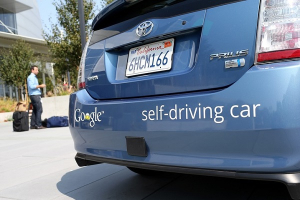Michigan is the first US state to approve of statewide self-driving regulations that can allow the testing, deployment and sale of self-driving (also called autonomous) cars. The state of California has also recently approved of the testing of Nvidia's self-driving cars on public roads. Earlier, the state has already released permits for Mercdes-Benz, Tesla, Ford, GM, Faraday Future and NextEV on the public road testing of their autonomous cars.
For Michigan, for now, the only caveat is tech companies developing self-driving cars should be in partnership with traditional carmakers in the manufacture of their cars. This is the only way these tech companies are able to distribute, sell and drive their autonomous cars on public roads.
David Strickland, general counsel for Google, Uber, Ford and Lyft, says of Michigan Gov. Rick Snyder's move, "We're pleased to see that the Governor of Michigan and its state legislators recognize the tremendous safety potential and mobility benefits of self-driving technology."
He adds, "States play an important role in road safety, such as licensing and registration, but the federal government should provide the national framework to prevent a patchwork of state laws and regulations. We advise states to avoid developing state-specific vehicle requirements that may contribute to inconsistency across the country."
What do Michigan and California's approval of self-driving cars on public roads mean for the future of driving?
First, self-driving taxi service. With Apple, Google, Uber and Lyft all doing self-driving car developments, there is a potential of trying out a fleet of autonomous taxis that can run off 'smart' AI technologies. This means a plug-and-play taxi service where a customer requests for a ride, a driverless cab arrives, and the passenger is directed towards the destination with more sophisticated GPS tools. Payments are also done entirely online.
While this can be a scary concept for now, a self-driving taxi can also mean no more racial, sexist and discriminatory issues between rider and driver. However, with taxi company drivers already rallying for their loss of jobs against Uber drivers, the self-driving future can mean a bigger loss for an even bigger group of both employed and self-employed cab drivers
Second, the future of driving can also entail renewed planning and development of roads, especially in high-income cities like London, Shanghai, Singapore and Tokyo. Proper areas for picking up and dropping off passengers should be planned well, with better delineations as opposed to the tendency of people to defy traffic rules.
It is also foreseen that not all cities can handle self-driving cars on their roads. For example, in densely populated Manila and New Delhi, coupled with their poor infrastructures, the seamless kind of driving that is expected with autonomous cars can be difficult to achieve.

















